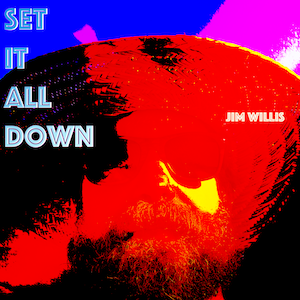The Walking Tour
Kathryn Davis
Monday, January 15, 2001
The cover blurb for The Walking Tour leads you to believe that it is a story about two couples that go to Wales on a walking tour of the countryside. During that tour, so says the blurb, a fatal accident occurs. ItÕs not like the blurb lies about whatÕs between the two covers, but rather, it oversimplifies it to the point of absurdity.
The two couples consist of Bobby Rose, a hardcore business-type; his wife, Carole Ridingham, an artist of certain fame; BobbyÕs business partner, Coleman Snow; and his wife, a would-be-writer, Ruth Farr. The tension between these four characters is enough to drive the suspense along. The story is narrated by CaroleÕs daughter, Susan. My best guess is that the events in the story happened maybe 50 years prior to the narration. And since the events in the story being narrated assume a fairly technologically evolved America (about present-day), my guess is that the story is being narrated about 50 years in the future.
There are two things that cause a certain amount of confusion in my reading of the book. The first is the quality of the language. Sentences are constructed so musically that the melody distracts from their intended meaning. This is not a shortcoming of the author, but rather my own fault for getting so wrapped up in the language. The other element that really confuses is the aggressively playful foreshadowing that goes on throughout the book. You know from the onset that some sort of tragedy is going to occur, but you donÕt know when and you donÕt know who suffers the Òfatal accident.Ó Throughout the book though the author uses countless techniques to provide the reader with hints and ominous clues, clear enough to make putting down the book next to impossible, but with enough opacity so that you are never really certain when itÕs going to happen or to whom.
There are two reoccurring ideas in the book that they lead me to believe that they offer some clue as to what the book is about:
The first idea manifests itself in painting. ItÕs something called repentance. As defined by the author: repentance occurs when the last application of paintÑwhich usually happens to be thick and opaque and is, consequently, the one used for the face of things such as people or watchesÑbeings to turn transparent, and ghosts begin leaking through.
The other is the business that Bobby and Coleman are involved in. Namely; a method that allows readers to interact with immediacy to whatever they are reading, to edit it, change it and reconstruct it as their interpretation seems fit.
What both of these things have in common is the illusion that there is any permanent surface to reality. With Bobby and ColemanÕs invention, any authorÕs original intent breaks down, with repentance, the painterÕs intended final picture changes over time to reveal the underlying action that led to that final intent, blurring the process and the outcome into some simultaneously arising series of events seen all at once–cause and effect are the same gesture. What adds to the confusion of digesting the plot of this novel is that the reader is expected to be able to view the simultaneous arising of cause and effect (though interesting that the author makes several opaque references to Buddhism in the book). Not something all that easily achieved, though the author does an incredible job at trying to make it feasible for the reader.
When cause and effect are witnessed in a single gesture, what does this say about morality? Can Susan, who is effected by some action of her motherÕs, ever accurately judge her without being able to see the entirety of her actions? I think the book is dealing with the question of morality and how it is largely impossible for us to judge anyoneÕs actions without seeing the entirety of the cause and effect.
Throughout the book details of a court hearing are mentioned. The court case regards the notion of whether or not the fatal outcome of the walking tour was a ÒforeseeableÓ outcome. The book argues that nothing is really foreseeable unless we are able to completely grasp all the causes that led to the tragic effect, which may or may not be possible. As every life is somehow intertwined with all causes and effects, there is no way to point an accusing finger at someone else without pointing at everyone, yourself included.
Another thing that comes to mind here is the state of world in which the narrator lives. She lives in New England (Maine?) and makes several references to the environment and everyday life that seem to indicate that the future is not the most wonderful place to live. There seem to be odd storms that blow in and dogs all have legs that are too short and it causes health problems and the authorÕs description of shopping for groceries at the IGA is reminiscent of soviet breadlines. There is also the reference to a strange class or group of people called Strags, that seem to be something of a homeless population gone berserk. But the narrator doesnÕt complain about these things as much as she simply describes them, as if this is simply how things are and nothing can be done about it. ItÕs not her fault that the quality of the world has somehow declined. Rather it is the fault of everyone who has ever lived before her and failed to act without trying to simultaneously witness the cause and effects of their actions.
I think the point of all this musical language though, is to point us to the problems of seeing the world as if it is a place where anything occurs with certainty. It raises the question: What can we be sure of? And answers: nothing. ItÕs not really as dark as I make it sound though. ItÕs sort of playful in its approach to the question of impermanence and illusion.

